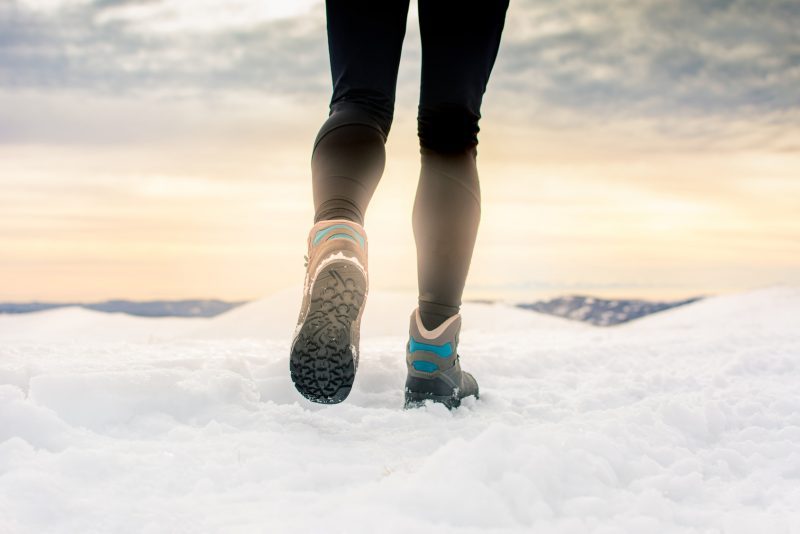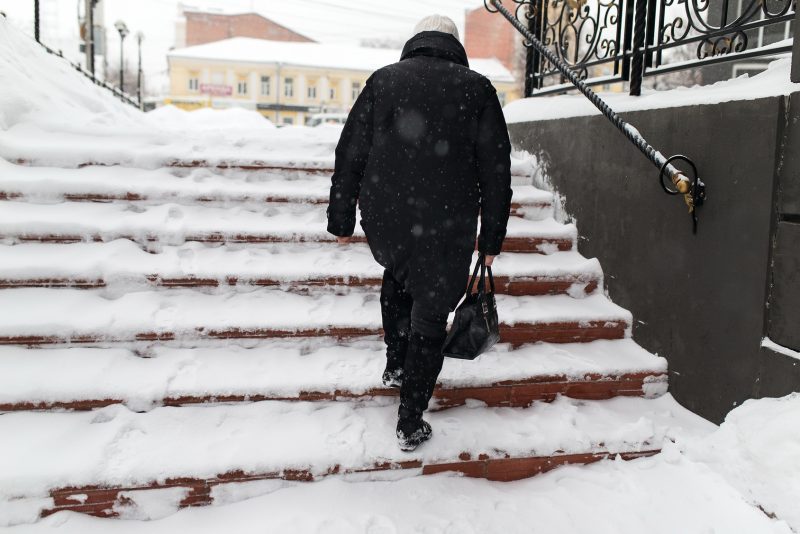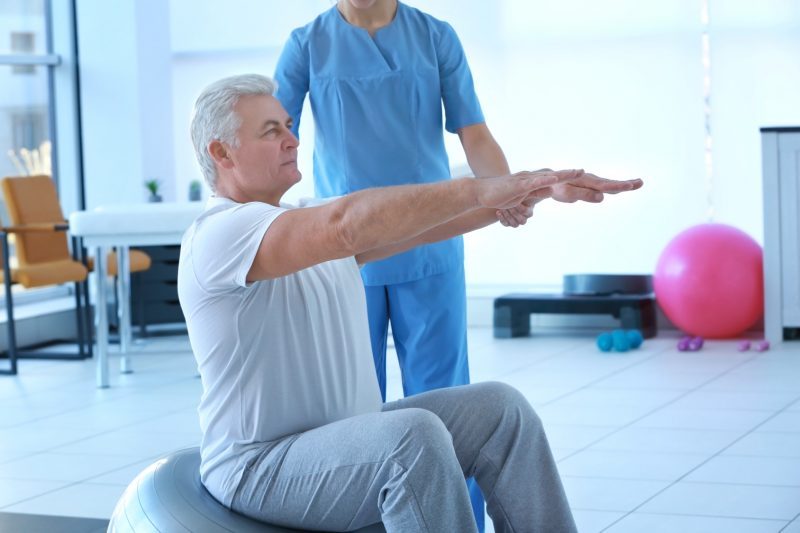Mass. Eye and Ear balance and dizziness specialist Dr. Steven Rauch offers some tips to prevent falls and stay upright on a slippery winter day.
Bitter cold, whistling winds and icy sidewalks: Winter is officially upon us. And, as the temperature plummets, the likelihood of an injury-inducing fall rises.
The slippery surfaces of snow and ice can be challenging for us all — but seniors are at the highest risk for a dangerous fall, says Steven D. Rauch, M.D., medical director of the Mass. Eye and Ear Balance and Vestibular Center. According to a 2016 study by the CDC, falls are the leading cause of injury and death in older Americans.
As we age, our senses begin to lose a bit of their sensitivity. As a result, your vestibular system (or sense of balance) is also affected due to its reliance on input from the eyes, ears, and sense of touch.
“Your sense of balance is different from all your other senses, because other senses have only a single input. For example, you smell with only your nose,” said Dr. Rauch. “The vestibular system has multiple inputs. So, you can have a severe problem in one piece of the system, or a mild problem across the whole system, and the result is the same — You have poor balance. That can be a challenge for seniors.”
With this in mind, Dr. Rauch has some tips to help you and your elderly loved ones stay safe this winter:
1) Wear Proper Footwear

Proper footwear is exceedingly important to fall prevention, especially on slippery, icy surfaces during the winter. Instead of rushing outside in last summer’s sandals, take an extra moment to find your boots, thick-soled sneakers or other sturdy footwear.
Dr. Rauch warns that wearing the wrong shoes for any given situation increases your risk of an ice-induced slip. “If it’s snowy and icy out, going out in your flip flops and trying to run out to the end of the sidewalk to pick up mail is asking for trouble.”
2) Take Your Time

This winter, let deliberate movements be your constant companion. Though the world is fast-moving, slowing your pace down a flight of stairs could be the difference between a safe descent and an unfortunate fall.
This “slow it down” principle doesn’t just apply to your travel pace. “People fall when they lean, when they reach or when they move too quickly,” Dr. Rauch said. Simply taking your time and making slow, deliberate movements can reduce your risk of falling.
3) Wear Your Glasses, and Keep Your Field of Vision Clear

The eyes provide important sensory input to the vestibular system, and your ability (or inability) to see can impact your body’s perception of its surroundings. Make sure that your vision is not blurry or obstructed as you head outside in the winter.
Dr. Rauch recommends that your glasses — both for prescription and sun — are accessible at all times. “You need to be able to see to minimize your risk of falling. If you need glasses, wear your glasses when you go out on a slippery surface. If it’s bright and sunny, wear sunglasses,” he said.
4) Stay Alert and Focused

Proper eye and footwear will help you see and stay balanced, but an awareness of potentially treacherous surroundings also goes a long way. Staying alert and focused allows you to perceive and avoid slippery spots far before they become dangerous.
Avoid behaviors that reduce your alertness before traveling out in the winter. Lifestyle factors, like listening to loud earbuds or taking certain medications that make you drowsy, put you at risk for falls.
5) If You Have Poor Balance, Consider Physical Therapy

Some of us — whether from age or from a medical condition affecting the vestibular system — are dizzy or have a poorer sense of balance than others.
Physical therapy can help those with poor balance function to learn to prevent falls or to lessen the effect of them. If you’re someone who has a sensory impairment, is habitually groggy or just wants a bit of extra knowledge or assistance, talk to your doctor about physical therapy sessions.
We hope you’ll keep these five tips in mind when taking on the next blizzard or icy day that’s thrown your way, and we wish you a safe and warm (or, as warm as possible!) winter.

Thanks for article; I am now recovering from a broken ankle. Believe me balance and strength are key.
I am presently doing physical therapy to get the strength and not having the fear of falling.
Thanks again
So sorry to hear about that broken ankle, Tricia! We hope that the physical therapy is helpful. Thank you for reading.
I do a modified Epley maneuver every morning. Down on all foers, top of head on the floor, hold for one minute. This holds off dizzy spells before going out on the icy sidewalk. Vertigo.
Thanks for reading, Margaret!
Thanks for the message on balance, particularly on slippery winter surfaces.
I am beginning to have balance issues and have followed the 1st 4 points the article identified:
1. Wear Proper Shoes
2. Give your self enough time to move at a safe pace
3. Wear glasses (eyeglasses or sunglasses) as needed
4. Be alert and focused. Do NOT get distracted.
However, the 5th tip – Consider Physical Therapy to help your Balance – is a good idea. I do exercise for certain conditions that I have, so I will add balance to the list. It will be interesting to see what exercises I will be given and, of course, if they help with my balance. I am sure they will.
Glad to hear that these tips were helpful, Jim! Indeed, we wanted people to know that there are physical therapists out there who are trained to help people improve their balance. Take care and thank you for reading.
Why seniors are at highest risk for falls in winter, according to Dr. Steven D. Rauch?